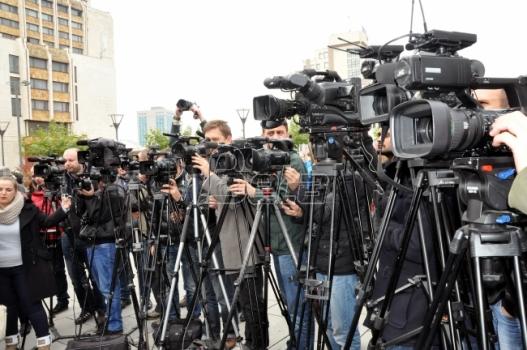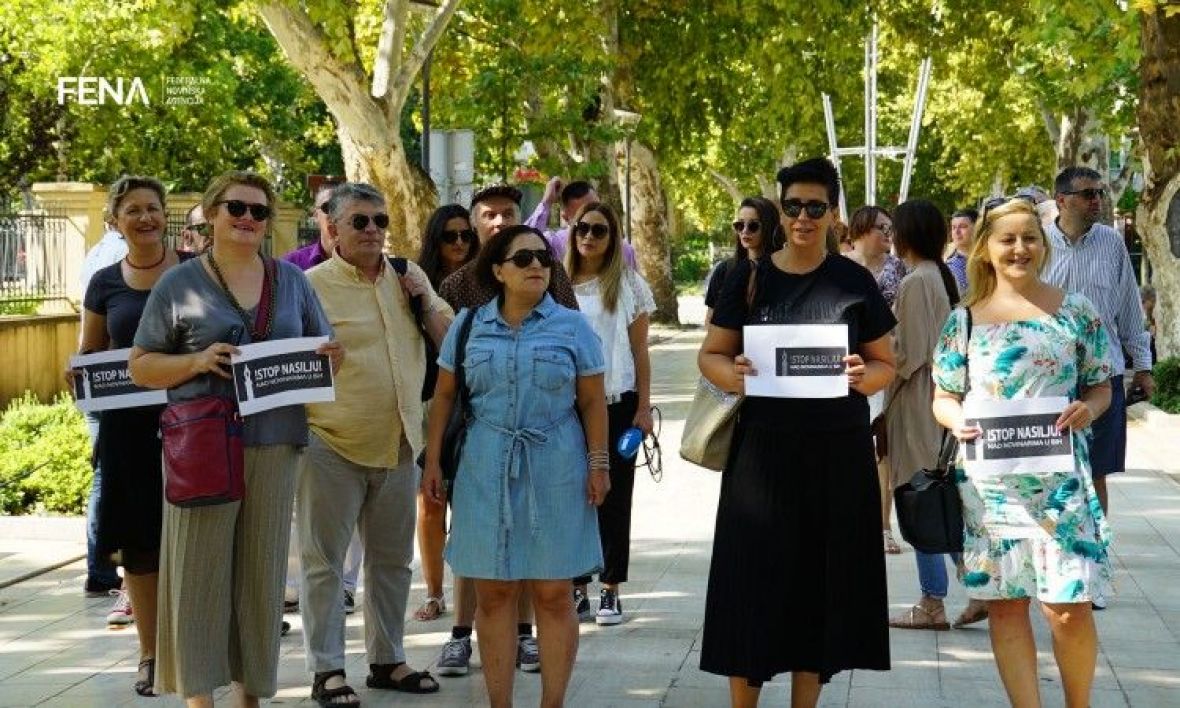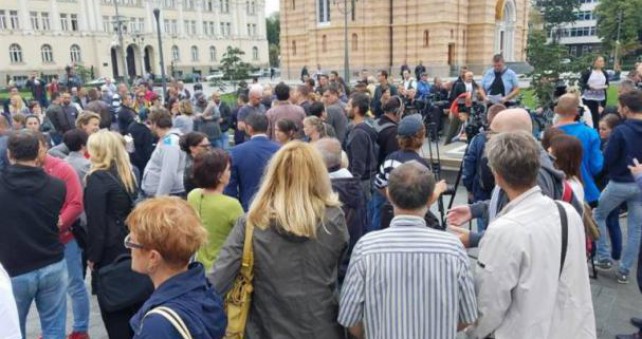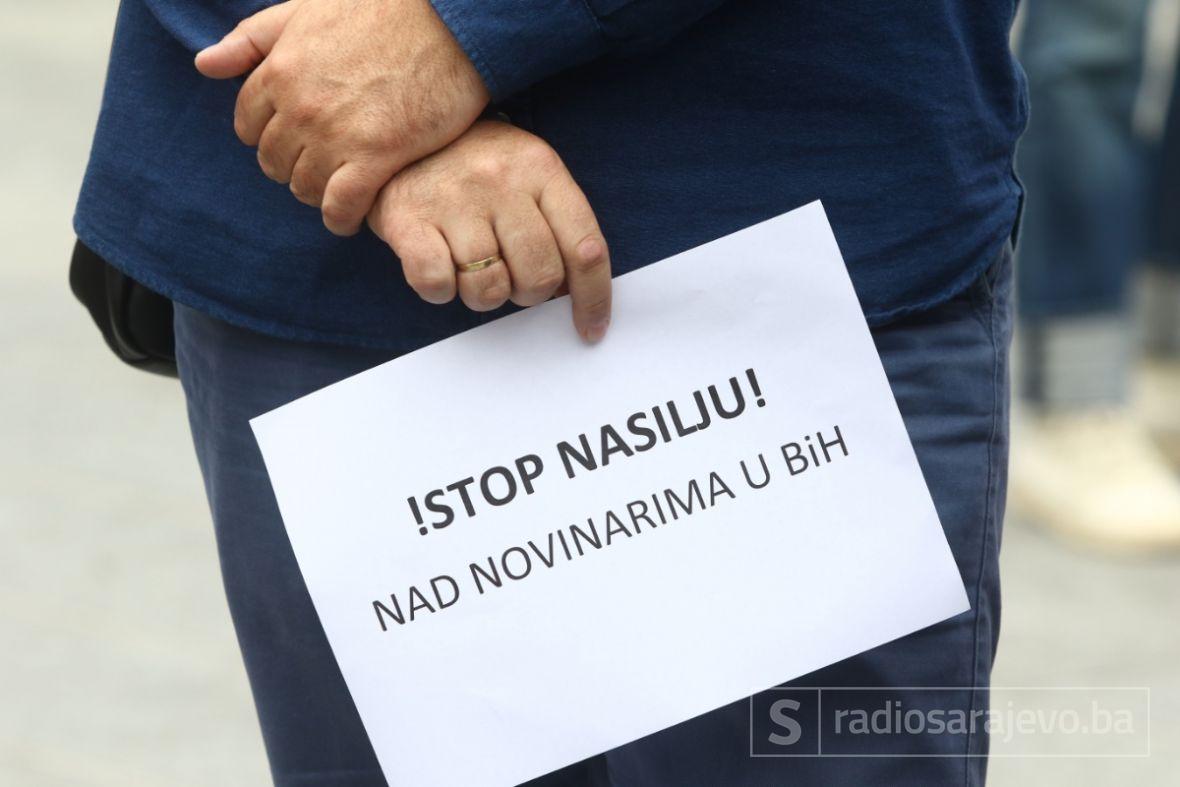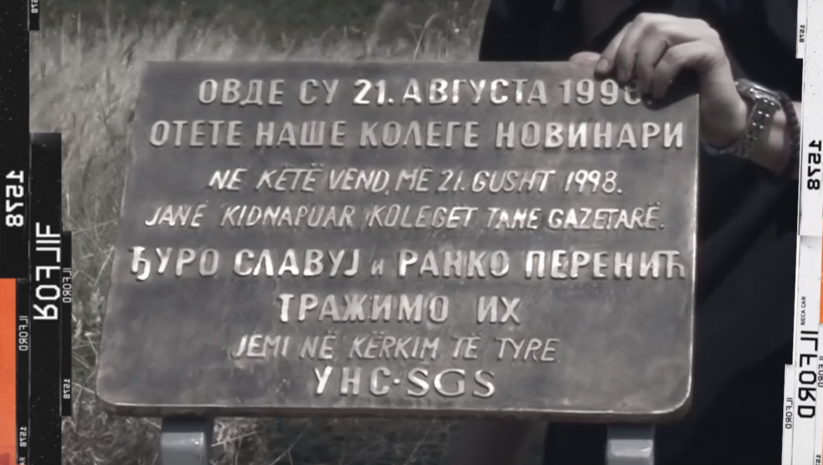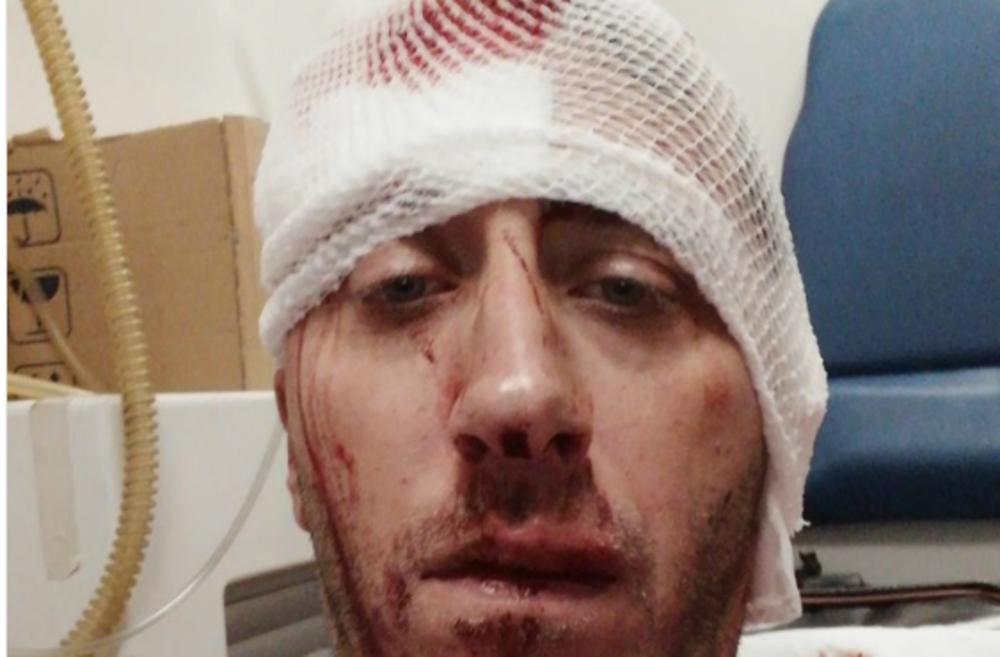BELGRADE, 28.08.2018. – After the European Federation of Journalists (EFJ) unanimously adopted a Resolution urging the investigation of murders of journalists in Kosovo as proposed by the Association of Journalists of Serbia (UNS), the Independent Journalists’ Association of Serbia (IJAS), the Trade Union of Journalists of Serbia (SINOS) and the Association of Journalists of Kosovo (AJK), the government of the Republic of Serbia brought a decision to expand the jurisdiction of the Commission for investigating murders of journalists to include the cases of murder and abduction of journalists in Kosovo and Metohija from 1998 to 2001, as well as the murders of journalists during armed clashes in the Socialist Federal Republic of Yugoslavia from 1991 to 1995.
“The decision to expand the jurisdiction of the Commission tasked with considering the facts determined so far during investigations into the murders of journalists, was passed to ensure – through coordination of the Republic of Serbia’s agencies and in cooperation with journalists and similar institutions from the region – the continuation of the fight to end impunity for murders of journalists and contribute to solving the murders of journalists during the 1991-1995 armed clashes in SFRY as well as the abductions and killings of journalists in the Autonomous Province of Kosovo and Metohija from Jan. 1, 1998, until Dec. 31, 2000,” says an announcement of the Government of Serbia.
The announcement also reads that “new members of the Commission were also elected, representing the Office of the War Crimes Prosecutor and the War Crimes Department of the Ministry of the Interior of Serbia.”
|
EFJ RESOLUTION ON INVESTIGATIONS OF MURDERS OF JOURNALISTS IN KOSOVO
“Noting with concern that it has been 20 years since the start of a series of killings, kidnappings and “disappearances” of fourteen Serbian and Albanian journalists in Kosovo with no one being brought to justice for these crimes committed between 1998 and 2005, the EFJ Annual Meeting in Lisbon, Portugal, on June 6, 2018, calls for prompt and effective investigations of the following unresolved crimes:
– The kidnapping of Djuro Slavuj and Ranko Perenić of Radio Priština, who disappeared during assignment on a local road near Orahovac on Aug.21. 1998;
– The murder of Afrim Maliqi, journalist in Priština on Dec. 2, 1998;
– The murder of Enver Maloku in Priština on Jan. 11, 1999;
– The disappearance of Ljubomir Knežević, correspondent of the national daily Politika and journalist of Jedinstvo from Priština, who went missing in Vučitrn on May 6, 1999;
– The kidnapping of Milo Buljević, worker of RTV Priština in Priština on June 25, 1999;
– The murder of Aleksandar Simović, journalist of Media Action International in Priština on Aug. 21, 1999;
– The murder of Krist Gegaj, editor in RTV Priština on Sept. 12, 1999;
– The murder of photo-reporter Momir Stokuća in Priština on Sept. 21, 1999;
– The disappearance of the journalist of the Serbian desk of Radio Kosovo, Marjan Melonaši, in Priština on the Sept. 9, 2000;
– The murder of Shefki Popova, journalist of Rilindja on Sept. 10, 2000 in Vučitrn;
– The murder of Xhemajl Mustafa, journalist of the newspaper Bota Sot in Priština on Nov. 23, 2000;
– The murder of Bekim Kastrati, journalist of the newspaper Bota Sot in the village of Lauš near Priština on Oct. 19, 2001;
– The murder of Bardhyl Ajeti, journalist and columnist of the newspaper Bota Sot, who was attacked on June 3, 2005 in the village of Bresaljce near Gnjilane, and who consequently died on June 28, 2005.
|
SUPPORT OF THE EFJ ANNUAL MEETING
“A single commission should not be expected to resolve all cases, but it is very important to establish the mechanisms that have proved their efficiency on a wider plane, within the legal standards and with a firmly expressed political will to have the fate of the murdered and missing journalists resolved,” says Veran Matic, the Commission president. He added that such activity is very important at the time when the number of threats and attacks against journalists is on the rise, with impunity for such deeds also growing in scope. Every unsolved attack on journalists comes as an encouragement, whereas every attempt to resolve such incidents is an additional obstacle to such attacks occurring in the future.
Let us recall that at the EFJ Annual Meeting in Lisbon in June Muharem Bazdulj, on behalf of the Resolution’s initiator – the Association of Journalists of Serbia – presented the delegates from the European media organizations with the data concerning the cases of murdered and abducted journalists, proposing the adoption of the document.
The Resolution calls for an efficient investigation of the murders and abductions of 14 Serbian and Albanian journalists and media workers in Kosovo from 1998 to 2005, urging EULEX and the United Nations to implement the decisions of the Human Rights Advisory Panel on probing the murder and kidnapping cases and providing compensation for their families.
The document also calls for prosecutors in Belgrade and Priština to cooperate in resolving the said cases, that the mandate of the Special Court for War Crimes committed in Kosovo be extended to include the cases of murdered and kidnapped journalists and media workers, and that a commission be formed in Priština to investigate the murders and kidnappings of journalists and media workers in Kosovo in the period from 1998 to 2005, which should include journalists as members.
The Annual Meeting instructed the EFJ Steering Committee “to support with all means the Convention on Safety of Journalists project the International Federation of Journalists (IFJ) wants to submit to the United Nations General Assembly and which proposes the creation of a group of international and independent experts who would make inquiries into unsolved assassinations of journalists.”
As confirmed to the Association of Journalists of Serbia by the EFJ General Secretary Ricardo Gutierrez, the EFJ had sent the text of the Resolution to EULEX head Alexandra Papadopoulou, UNMIK chief Zahir Tanin, Kosovo Special Court president Ekaterina Trendafilova, Kosovo Special Prosecutor Jack Smith, Kosovo Special Court Ombudsman Pietro Speri, Serbian President Aleksandar Vučić, Kosovo President Hashim Thaci, Serbian Parliament Permanent Delegation to the Council of Europe’s Parliamentary Assembly head Aleksandra Djurovic, Kosovo Ambassador to France Mihamedin Kulashi, and OSCE Freedom of the Media representative Harlem Desir.
Gutierrez also said that Special Prosecutor Jack Smith promised to “officially respond to the information received,” while Chris Bennett, from the Office of the Special Prosecutor, said that he “will notify the EFJ about the developments in connection with this Resolution.”
RECONCILIATION PROCESS
During his visit to the Association of Journalists of Serbia, Jan Braathu, the head of the OSCE Mission in Kosovo, met with its general secretary, Nino Brajovic, and Jelena Petkovic, Vesti journalist and the Association official. On the occasion, according to an announcement by the Association, Braathu expressed his interest in “Dossier 14,” a study prepared by the Association on the journalists who were murdered and went missing in Kosovo and Metohija from 1998 to 2015.
Braathu said the study was done in line with the highest professional standards and, in addition to being of importance for the journalistic profession, is also contributing to the process of reconciliation in Kosovo.
He underlined that he considers the fact that the European Federation of Journalists adopted the Resolution on the investigation of murders of journalists in Kosovo a great success for the media community.
Braathu added that the Resolution will also be of importance for the work of the OSCE in Kosovo and expressed his wish to meet with EFJ representatives to discuss the subject, but also the issue of security of journalists in Kosovo in general.
Braathu acquainted the Association representatives with a campaign the OSCE is conducting in Kosovo under the title “Protect Journalists, Protect Freedom of Speech”, underlining the special importance of raising awareness in Kosovo society of dangers the journalists and media are facing.
The Independent Journalists’ Association of Serbia (IJAS) also supported the fight against impunity for murders of journalists as well as every effort leading to the clarification of and sanctioning such murders in all parts of former Yugoslavia affected by armed clashes. It, therefore, also supports the decision by the Serbian Government to expand the jurisdiction of the Commission tasked with investigating the murders of journalists, expressing, however, a doubt that the Commission will be able to achieve that what the justice system has failed, or simply refuses, to accomplish.
“It is obvious that not only there have been no new details regarding the cases of journalists murdered in Croatia, Bosnia and Herzegovina and Kosovo, but there has been no serious progress in cooperation between prosecutors’ offices and police of the former republics and the province either,” says Slaviša Lekić, the IJAS president. He also warned that there is a justified fear that the decision of the Serbian authorities might be interpreted as an attempt by Serbia to usurp the jurisdiction in the matter, making it a subject of new disputes between Serbia, Croatia, Bosnia and Herzegovina and Kosovo.
Veran Matic, however, believes that “the precision and results of the Commission’s work in Serbia have been confirmed both at home and internationally – by the OSCE, UNESCO, the U.N., the Committee to Protect Journalists, Reporters without Borders.”
Matic pointed out that although there are international agreements on launching investigations into the fates of the killed or missing persons, there has been no progress in revealing the facts pertaining to the journalists and media workers who were killed and went missing in Croatia, Bosnia and Herzegovina, and the Autonomous Province of Kosovo.
“There has been no progress in cooperation of prosecutors’ offices and police either. In particular, there has been no focus on the cases of the killed and abducted journalists,” he added. Because of that the decision on the inclusion of representatives of the War Crimes Prosecutor’s Office and the War Crimes Department of the Ministry of the Interior is a step forward toward a constructive cooperation in clarifying the murders and kidnappings of journalists,” Veran Matic concluded.
|
AJK: COOPERATION OF KOSOVO AND SERBIA IN CLARIFYING MURDERS
The Association of Journalists of Kosovo (AJK) remains committed to investigating the murders of journalists in the period from 1998 to 2005 in Kosovo. These cases have to be investigated and prosecuted by the Kosovo justice system so that those who participated in the crimes are brought to justice and handed down sentences they deserve, reads an announcement issued by the AJK.
The AJK has continuously raised this issue during meetings with representatives of state institutions of the Republic of Kosovo, especially those in charge of security and justice, demanding that the criminal investigations into the murders of 14 journalists be given priority, the announcement adds.
The Association of Journalists of Kosovo supports and respects the principles of positive law implemented in accordance with the integrity, territoriality and jurisdiction of the Republic of Kosovo’s judicial bodies in the area as stipulated by the Constitution and applicable laws.
The institutions of the Republic of Kosovo have jurisdiction over its entire territory and are obligated to investigate and prosecute all crimes committed in that territory. Therefore, the only address from which the AJK, together with its regional partners, can expect efficiency is the State Prosecutor’s Office and the Judicial Council of Kosovo, the Association pointed out.
The AJK encourages the relevant institutions of Kosovo and Serbia to cooperate so that the murders of journalists committed in the period from 1998 to 2005 may be clarified, the Association’s announcement concludes.
|

This article has been produced as a part of the project Western Balkan’s Regional Platform for advocating media freedom and journalists’ safety with the financial assistance of the European Union. The contents of this article are the sole responsibility of the Independent Journalists’ Association of Serbia and its authors, and can in no circumstances be regarded as reflecting the position of the European Union.


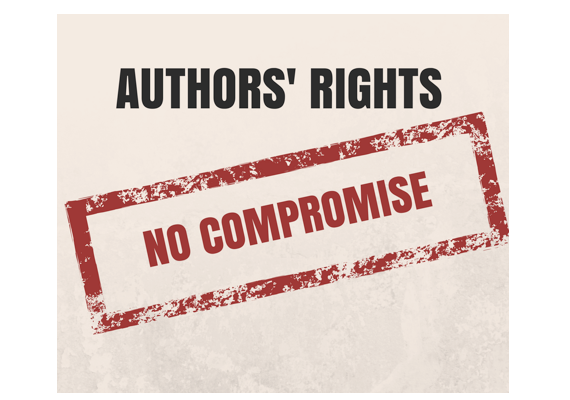
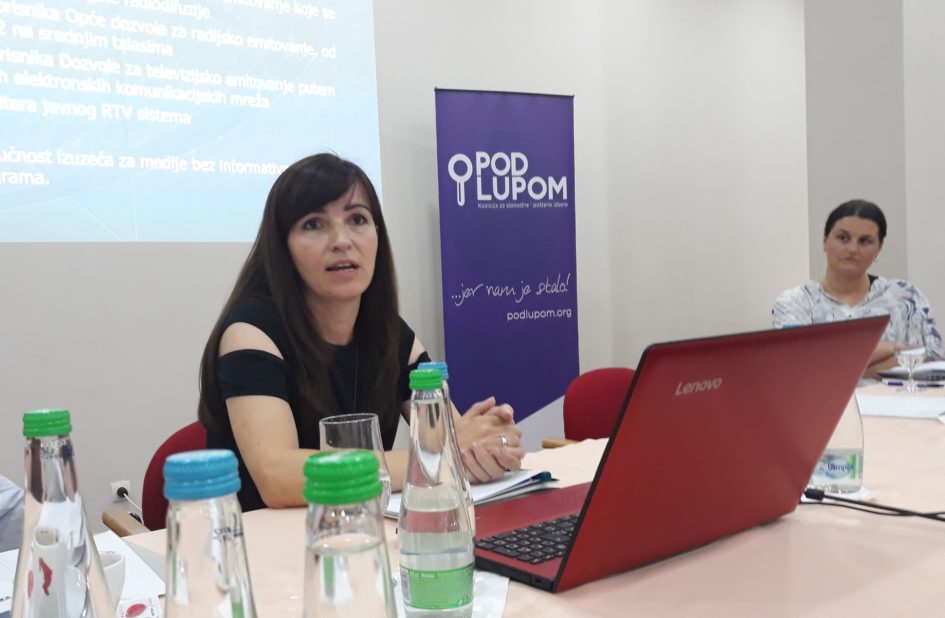
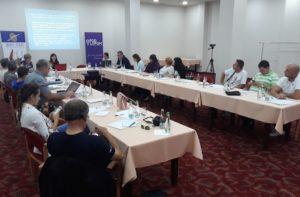
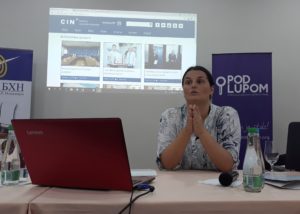 Journalist of the Centre for Investigative Journalism, Mirjana Popović recalled on databases created by CIN journalists and researchers. „The databases provided by CIN are documented and at all times can serve as a quality supplement to daily journalism“, said Popović, and added that the data base is available to journalists and to wider public through the web page www.cin.ba. This base could serve as a starting point and a credible source of data for creating critical media content that will be published during the pre-election campaign.
Journalist of the Centre for Investigative Journalism, Mirjana Popović recalled on databases created by CIN journalists and researchers. „The databases provided by CIN are documented and at all times can serve as a quality supplement to daily journalism“, said Popović, and added that the data base is available to journalists and to wider public through the web page www.cin.ba. This base could serve as a starting point and a credible source of data for creating critical media content that will be published during the pre-election campaign.